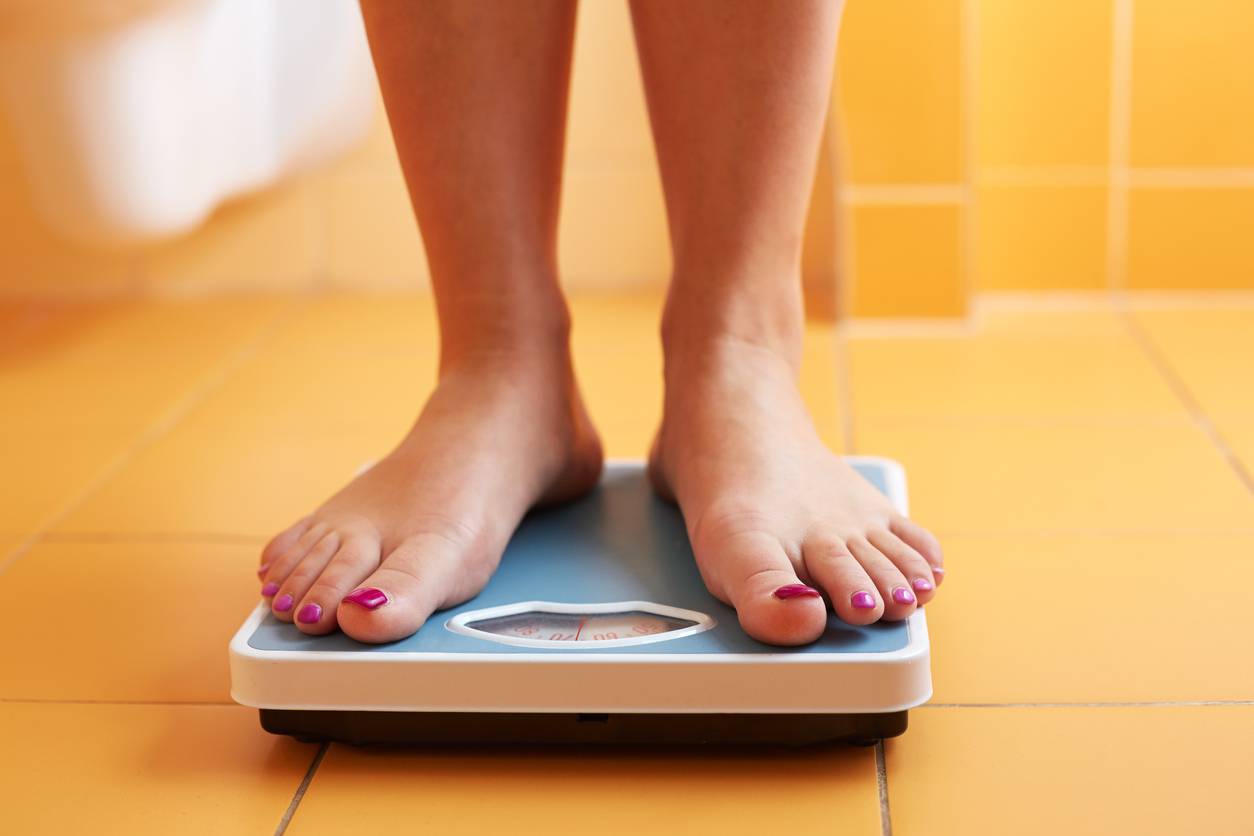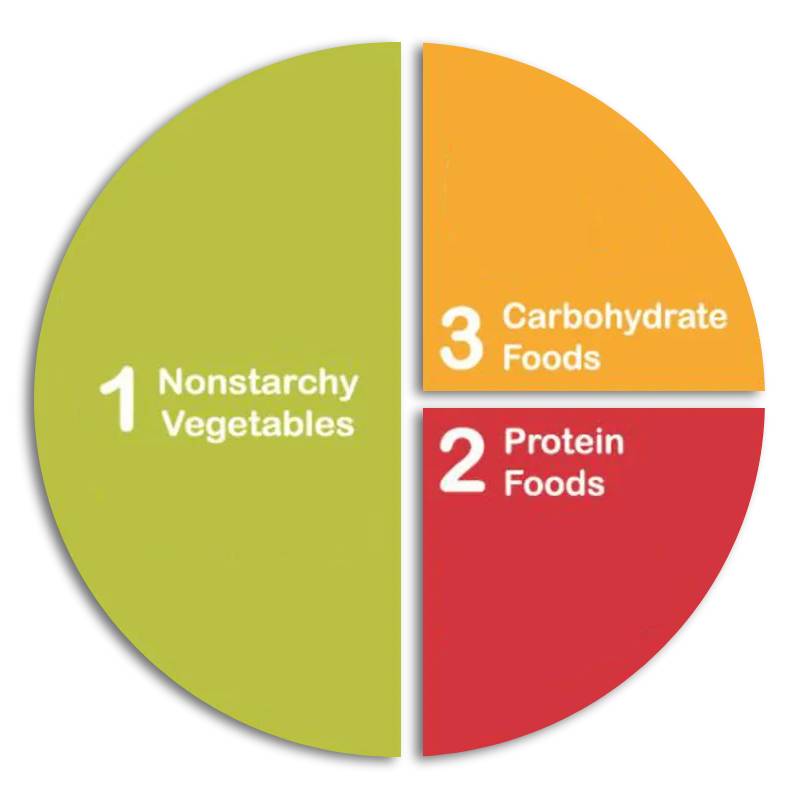What Is a Balanced Diet and How to Maintain One?
Good nutrition is a fundamental building block of good health. Eating a balanced diet, rich in whole grains, nuts, fruit and vegetables may support your immune, boost your energy levels and give your body the fuel and nutrients it needs to thrive.
However, while most of us know that nutrition is important, understanding exactly what makes a healthy, balanced diet can be a challenge. Contrary to what many people think, eating well isn’t just about counting calories – it’s about getting a range of nutrients from various food groups and avoiding foods that are processed, full of additives and high in sugar and saturated fats.
As well as eating a variety of healthy foods, you also need to think about portion sizes. The NHS Eatwell Guide explains how much fruit, veg, carbohydrates and protein are needed to make up a balanced diet. Following this guide – and taking a look at our healthy eating tips - could help you achieve the balance, and the nutritional support, you’re looking for.
Key Takeaways
1 | A balanced diet includes all major food groups in the right proportions
2 | Understanding portion sizes is crucial for maintaining a healthy diet
3 | Small, sustainable changes are more effective than drastic diets
What Is A Balanced Diet?
A balanced diet is one that includes a range of healthy carbohydrates, proteins and fats from a variety of dietary sources.
According to the NHS Eatwell healthy eating guide, a third of your diet should be made up of fruit and vegetables and a third of starchy foods (our main source of carbohydrates). The final third should be mostly made up of protein, though it can also contain small amounts of other foods high in fat, salt or sugar.
It’s important to eat a wide variety of different foods as this helps your body get a range of essential nutrients.
If you want to know what a balanced diet is from a practical point of view, you can use your hands as a guide. In general, women need a palm-sized serving of high protein foods per meal, a fist-size portion of high carb foods, and a thumb-sized portion of high fat foods. Men need double this amount on average. Both men and women should eat enough fruit and vegetables per meal to fill one cupped hand.
Understanding Macronutrients
Macronutrients are fats, proteins and carbohydrates. They are the nutrients that your body needs in large amounts in order to function properly.
When looking at how to maintain a balanced diet, it’s important to think about the amount of the macronutrients you’re consuming. Getting this balance right may help you to feel more energetic and could make it easier to maintain a healthy weight.
On average, 10% to 35% of your daily calorie intake should come from protein, 45% to 65% from carbohydrates and 20% to 30% from fat. It’s important to remember that fat contains around double the number of calories per gram as carbohydrates or proteins.
For women, that works out to 70g of fat, around 46g of protein, and 260g of carbohydrates per day.
While for men, it’s roughly 95g of fat, 60g protein and 300g carbohydrates.
Good sources of macronutrients include:
- carbohydrates: quinoa, brown rice, bulgur wheat, peas, beans and lentils
- protein: eggs, fish, yoghurt, lean meats, nuts and seeds
- fat: olive oil, avocado oil, nuts, full-fat yoghurt, oily fish

Essential Micronutrients
Micronutrients are the vitamins and minerals that are vital to healthy development, growth, disease prevention and well-being. Most of these vitamins and minerals are contained in healthy sources of macronutrients. So, eating a balanced and varied diet, may ensure you get all of the micronutrients you need.
Though we only need tiny amounts of these nutrients, a lack of key vitamins and minerals could have serious consequences. If your diet is low in micronutrients, you may:
- feel tired
- have regular headaches
- experience muscle weakness
- have constipation
- experience tooth loss
- find your bones are brittle
- find that wounds heal slowly
In extreme cases, a lack of micronutrients can be life-threatening.
Examples of important micronutrients and their sources:
- iron: spinach, dried apricots, tinned sardines, lentils, broccoli, liver, eggs
- calcium: dairy products, leafy greens, broccoli
- magnesium: almonds, cashews, black beans
- potassium: lentils, bananas
- zinc: seafood, red meat, chicken, dairy products
- iodine: cheese, eggs, yoghurt, seafood
- vitamin C: citrus fruits, kiwis, papaya, bell peppers, broccoli
- vitamin B1 (thiamine): whole grains, meat, fish
- vitamin B2 (riboflavin): eggs, milk, almonds, spinach
- vitamin B12: eggs, clams, fish, fortified cereals
- vitamin A: dairy, fish, sweet potatoes, carrots
- vitamin D: sunlight, milk, fish oil
- vitamin E: sunflower seeds, almonds
- vitamin K: leafy greens, soybeans, pumpkin
The Role Of Hydration
Hydration is a very important part of a healthy, balanced diet. Water helps to regulate your body temperature, keep your joints lubricated, prevent infections, deliver vital nutrients to your cells and keep your organs functioning properly.
If you become dehydrated, you may begin to feel unwell. Dehydration could cause dizziness, headaches, fatigue and sunken eyes. It may also cause low blood pressure and make you feel irritated or confused.
Ideally, you should drink water regularly throughout the day in order to maintain good hydration. Stick to water and herbal teas where possible and avoid fizzy drinks and juices as these can significantly increase your sugar intake.
In general, men need to drink around 3.7 litres of water per day, while women need 2.7 litres. If you’re doing a lot of exercise, or living somewhere hot, you may need to increase your water intake.
Drinking a glass of water before you eat a meal may help to stop you overeating. A lot of people mistake thirst for hunger so, if you’re undergoing weight loss treatment, or are trying to control your portions, drinking water first could help.
Creating Balanced Meals
An easy way to improve the nutritional balance of your meals is to use the plate method. For your main meals, simply divide your plate into quarters. Two quarters of your plate should be filled with non-starchy vegetables like broccoli, salad, spinach, asparagus, cauliflower or carrots.
One quarter of your plate should be made up of starchy foods like sweet potato, whole grains, pasta or rice. And the final quarter should be protein-based food like meat, fish, eggs or tofu. While you don’t have to follow this formula for every meal, using it as a rough guide should help you get your balance of macronutrients right.
An example of a balanced breakfast could be porridge (or overnight oats) with fruit, yoghurt, seeds and nuts. Eggs can also form part of a healthy, balanced breakfast, especially when they’re poached or boiled.
For lunch, you could eat chicken salad, veggie wraps, quinoa salad or egg salad. Focus on including lots of whole grains, healthy proteins and fresh vegetables, and avoid foods that are high in carbohydrates and fat like pizza, shop-bought sandwiches and takeaways.
Dinner could be homemade chickpea curry, grilled chicken with vegetables, homemade spaghetti bolognaise or lentil curry. Try to cook at home as much as possible as it’s easier to limit the amount of fat, salt and sugar in your food.

Tips For Maintaining A Balanced Diet
An easy way to improve the nutritional balance of your meals is to use the plate method. For your main meals, simply divide your plate into quarters. Two quarters of your plate should be filled with non-starchy vegetables like broccoli, salad, spinach, asparagus, cauliflower or carrots.
Maintaining a balanced diet can be a challenge, especially if you have limited time for cooking, prepping and grocery shopping. To help you get the nutrition you need, we’ve put together some of the most effective healthy diet tips.
Plan Your Meals
If you plan your meals at the beginning of each week, you’re more likely to stick to healthy, home cooked food and less likely to reach for a high fat takeaway or pre-made meal.
Shop Well
The way you shop for food can have a big impact on your diet. Try to avoid going to the supermarket when you’re hungry. Going grocery shopping on a full stomach could make it easier to resist unhealthy snacks and help you stick to your shopping list.
Food Prep
If you don’t have time to cook healthy meals during the week, try preparing your food at the weekend and freezing it for later use. Things like soup, stew, curry and lasagne are perfect for freezing. Invest in good quality containers to make storage easier.
Eating Out Guidelines
A lot of the time, food served in restaurants will have more salt, sugar and fat than the food you cook at home. Portion sizes in restaurants are often larger as well.
Asking for a smaller portion - or taking some of your food home with you to eat the next day - could help control your calorie intake when you eat out. Try to avoid high fat extras like mayonnaise and ask for things like salad dressing and sauces to be on the side.
Common Diet Mistakes To Avoid
One of the most common diet mistakes we make is to try and make extreme, unsustainable changes to the way we eat. You’re much more likely to stick to a diet if it’s practical, healthy and fits with your lifestyle. So, where possible try to avoid fad diets and stick to nutritious ingredients, small portions and regular exercise.
Another mistake people often make is to skip meals. While this may reduce your calorie intake in the short term, you’re much more likely to reach for unhealthy snacks – or overeat at your next meal – if you’re very hungry. This is especially true if you’re combining a new diet with weight training or cardio exercises.
Instead of skipping meals, choose ingredients that are low in fat and high in nutrients. A quinoa salad, grilled chicken salad or veggie wrap may keep your energy levels up and help stop you snacking.
As well as maintaining a balanced diet, you also need to do regular fat loss exercises if you want to stay strong and healthy. UK Chief Medical Officers' Guidelines recommend that adults do 150 minutes of moderate exercise, 75 minutes of vigorous activity and two strengthening sessions per week.
What To Do When All Else Fails
Even if you try to stick to the NHS eating well guide wherever possible, and make positive changes to your lifestyle, sometimes you may still need a little extra support to maintain a healthy weight. If you’ve tried to eat well and exercise but still haven’t achieved a healthy weight, there are some medically approved options that could help.
Weight loss tablets, like Orlistat, Xenical and Alli, and weight loss injections like Mounjaro and Wegovy, could reduce your appetite and help you lose weight.
In general, weight loss injections are more powerful than tablets. People who take Mounjaro or Wegovy could lose around 15% to 22.5% of their starting body weight after around a year and a half. While those on weight loss tablets could lose between 5% and 10% of their body weight after a year.
It’s important to remember that these treatments are not a replacement for diet and exercise. They should be used alongside a calorie-controlled diet and increased levels of exercise to help boost weight loss and improve your overall health.

It is essential that you speak to a licensed medical professional before starting any weight loss medication. They can provide personalised, expert guidance, assess potential risks and ensure that your chosen treatment is safe and suitable for your health needs.
Focusing on nutrition, hydration and portion size, and making small, sustainable changes to your diet, is the most effective way to maintain a healthy lifestyle.
If you feel you need a little extra support to lose weight and get healthy, we can help. Complete a weight loss consultation with a member of our team to find the treatment that’s right for you. Quick, easy and discreet, a consultation could set you on the path to weight loss success.
Sources:
Related Weight Loss guides
About the Author
Scott is one of the two founders of The Independent Pharmacy. He is a registered pharmacist and the registered manager of our service with the CQC.
About the Reviewer
Dan is an experienced pharmacist having spent time working in both primary and secondary care. He currently supports our clinical team by providing robust clinical governance review of our internal processes and information.